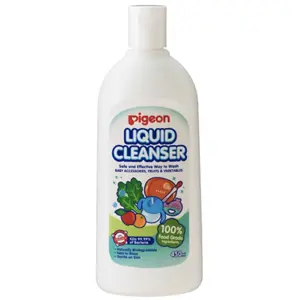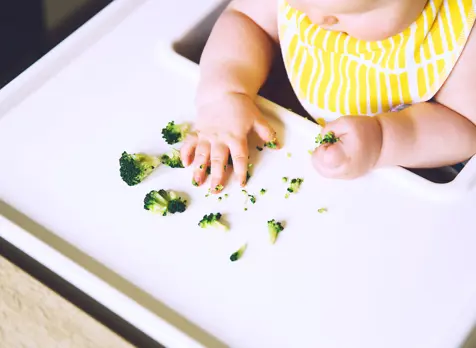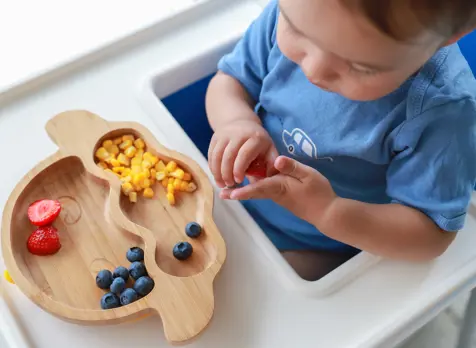Baby Feeding 8 to 12 months
Food for 8 to 12 month old babies

On this page
- How much food should my 8 month old be eating?
- 8 month old feeding schedule
- How much food for a 9 month old?
- 9 to 11 month old feeding schedule
- 12 month old feeding schedule
- Preparing food for baby
- Managing the mess
- What about allergic reactions?
- Keeping your baby safe
- FAQs about food for 8 to 12 month babies
By about 8 months old, your baby will be well established on solid foods. They will be enjoying 3 meals a day and even a small dessert as part of their baby feeding routine.
They will be eating a wider variety of baby food recipes including more textured food.
By about 9 months old, they may be eating morning and afternoon tea.
Your baby will enjoy having their own spoon to hold at mealtimes and experiencing finger foods.
How much food should my 8 month old be eating
Continue to increase the amount, variety and texture of foods guided by your baby’s cues. e.g. fork mashed foods and steamed vegetable pieces, soft fruit pieces, strips of soft meat.
As they grow, they are also likely to become more independent and will prefer to feed themselves, using their hands to explore tastes and textures. The amount of food your baby eats will depend on their appetite.
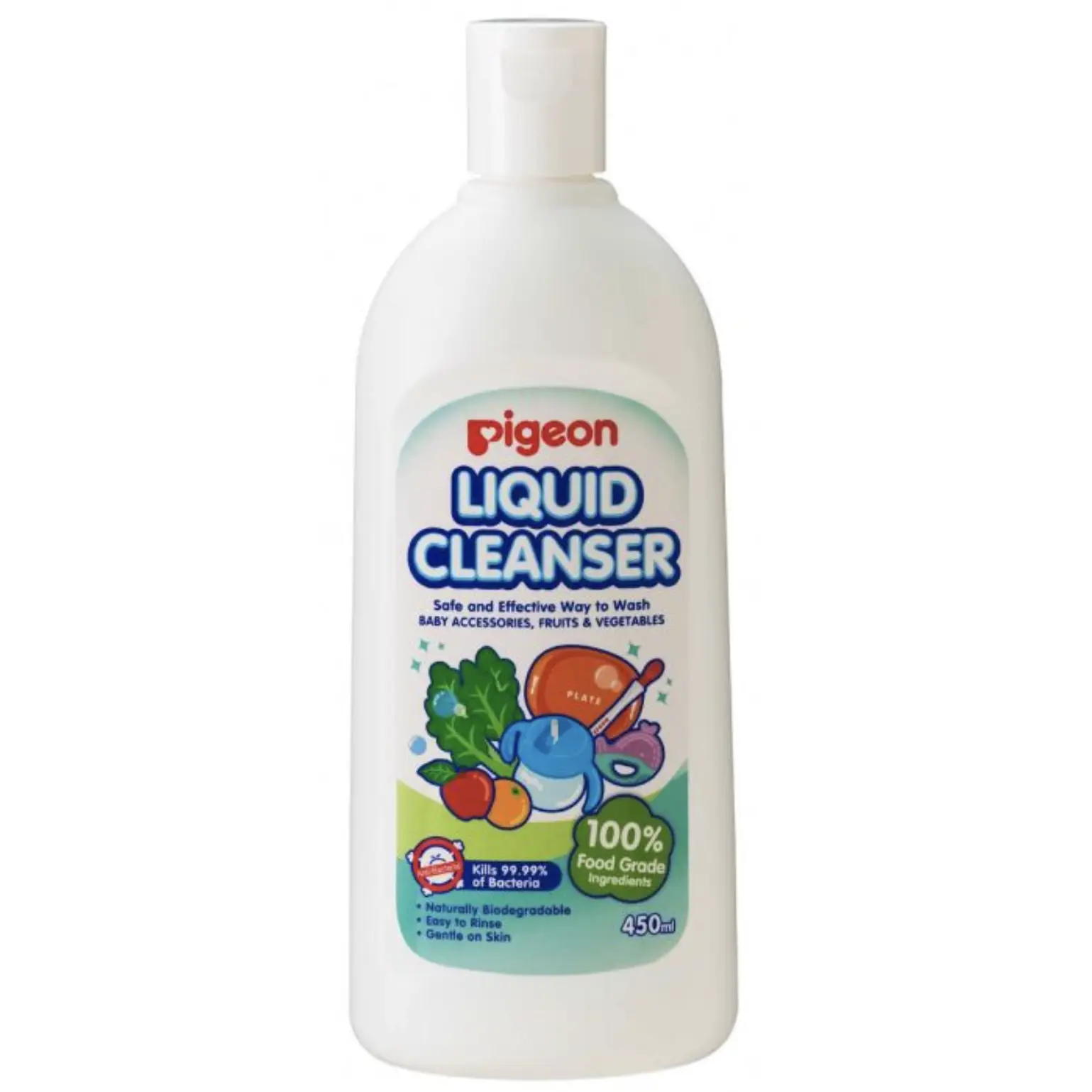
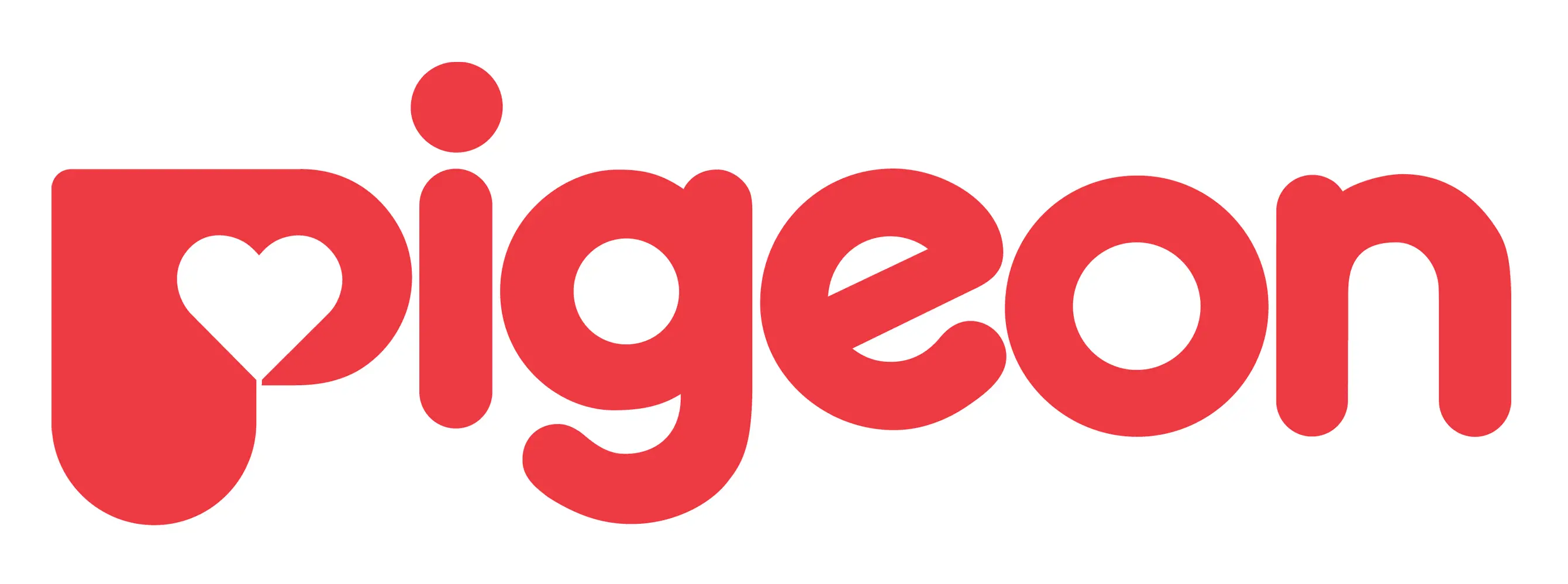
Advertisement
Pigeon Liquid Cleanser
8 month old feeding schedule
-
1
Your baby may still wake at sunrise and have an early morning milk feed.
-
2
Breakfast solids and a milk feed.
-
3
Lunch solids and milk feed.
-
4
Dinner solids and a milk feed.
-
5
Your baby may need a milk feed overnight.
How much food for a 9 month old?
By 9 months old, you could introduce a morning or afternoon snack. They will be able to use their thumb and fingers to enjoy finger foods. You could give them fruit or veggies, or perhaps a rusk stick. Avoid anything that is highly processed.
By this age, your baby will give you very obvious messages about when they want more food or they're finished eating. They'll close their mouth, turn away and verbalise that they don't want any more food. They might even yell that they want to get out of the high chair.
9 to 11 month old feeding schedule
-
1
Your baby may still wake at sunrise. Some babies still have an early morning milk feed, while others have discarded this feed (this is purely a personal choice).
-
2
Breakfast solids and a milk feed.
-
3
Morning tea
-
4
Lunch solids and milk feed.
-
5
Afternoon tea (perhaps fruit) and a drink of water.
-
6
Dinner solids and a milk feed.
-
7
Your baby may need a milk feed overnight.
12 month old feeding schedule
-
1
Your baby may still wake at sunrise. Some babies still have an early morning milk feed, while others have discarded this feed (this is purely a personal choice).
-
2
Breakfast solids and a milk feed.
-
3
Morning tea
-
4
Lunch solids and milk feed.
-
5
Afternoon tea (perhaps fruit) and a drink of water.
-
6
Dinner solids and a milk feed.
-
7
Your baby may need a milk feed overnight.
Preparing food for your baby
When preparing foods, always makes sure you protect your baby and family from infections. Always wash your hands before you begin food preparation and use different coloured boards for chopping meats, fruits and vegetables.
If you’re using a microwave oven to heat your baby’s food, always stir food thoroughly before serving, and check the temperature.
Managing the mess
Learning to eat can be a messy process! Try to be patient, though this can be difficult at times.
One way to manage this process is to give your baby a spoon to hold during feeding even though they will not be competent using the spoon until they are about 18 months.
What about allergic reactions?
If you are concerned your baby has had an allergic reaction to a particular food, call 000 immediately. Some allergies can be life threatening and can include breathing problems, wheezing, swelling of lips or throat, a severe red rash, diarrhoea or vomiting.
The most common food allergies for babies tend to be cow’s milk, eggs, soybeans, peanuts including cashews, almonds and brazil nuts, wheat, fish or shellfish.
Some babies have a food intolerance, which is different to a food allergy as it is generally a less severe reaction and is not caused by the immune system. Common food intolerances include dairy products, lactose, strawberries, tomatoes and citrus fruits.
Keeping your baby safe
- Choking is always a concern for parents when their baby starts eating chopped or finger foods. Great care needs to be taken when offering some foods especially those with bones or raw, crunchy fruits and vegetables.
- When buying fish, choose fillets that do not have bones and double check there really are no bones.
- Ensure your baby is seated when eating in a high chair or baby chair and use the safety harness.
- You or another adult should always be present and actively supervising when your baby is eating to encourage social interaction and avoid choking accidents.
- Avoid raw egg and honey due to the risk of bacteria
FAQs about food for 8 to 12 month babies
They should be eating a wide variety of mashed and minced foods. This can include iron rich foods like meat, chicken, fish and eggs, fruit and vegetables, dairy foods like yoghurt and cheese, grains like pasta and bread. Increase texture of their food including mashed and pieces of food to encourage chewing and self-feeding. Find out more recipe ideas.
You should be guided by your baby. They will tell you when they're finished by shutting their mouth, turning away or demanding to leave the table.
Advertisement






































